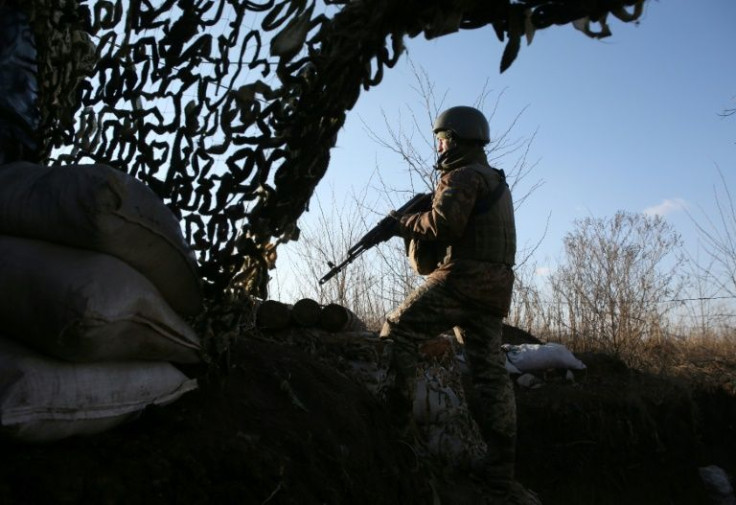NATO Warns Russia Against Ukraine 'Aggression'
NATO on Tuesday warned Moscow it would pay a high price if it launches an invasion of Ukraine, as Russian President Vladimir Putin cautioned the West not to cross the Kremlin's "red lines".
Top diplomats from the US-led alliance met in Latvia's capital Riga looking to deter a Russian incursion as fears have grown after accusations Moscow has massed tens of thousands of troops and heavy weapons on its neighbour's borders.
"Any future Russian aggression against Ukraine would come at a high price and have serious political and economic consequences for Russia," NATO Secretary General Jens Stoltenberg said after the meeting.
Stoltenberg said that alliance members could impose "economic sanctions and political reactions" against Moscow without going into detail.
"We need to be prepared for the worst and we need to convey a message to Russia that they should not conduct a military incursion into Ukraine," he said.
Earlier US Secretary of State Antony Blinken threatened "serious consequences" if Russia moves into Ukraine.

Moscow, which seized Crimea from Ukraine in 2014 and backs separatists fighting Kiev, has strongly denied it is plotting an attack and blames NATO for fuelling tensions.
Russian President Vladimir Putin said Tuesday that military exercises and other moves by the West and Ukraine threaten Russia's security, warning against crossing the Kremlin's "red lines".
"Look, they spoke about a possible Russian military intervention in Ukraine at the beginning of the year. But as you see this did not happen," Putin said.
The new build-up follows a similar surge in the spring, when Russia gathered around 100,000 troops on Ukraine's borders but later announced a drawdown.
NATO diplomats say the bloc remains uncertain of Putin's intentions this time round -- but ministers were discussing contingency plans should Russia invade.
The US-led alliance is looking to show the Kremlin it faces severe costs if it attacks Ukraine, while stopping short of provoking Moscow into further aggression.
Officials were weighing additional support for Ukraine's military and whether to strengthen NATO forces arrayed along its eastern wing.

But they point out that NATO-aspirant Ukraine -- which will have its foreign minister arriving for day two of the meeting on Wednesday -- is not covered by the alliance's collective defence pact.
Kiev has called for swift action to "deter" its Soviet-era master Moscow from invasion, saying that a Russian military operation could be launched "in the blink of an eye".
The long-scheduled meeting came at a volatile moment along the bloc's eastern flank as allies, Poland, Lithuania and Latvia, also grapple with a migrant crisis the West says is fuelled by Kremlin-backed Belarus.
They accuse Moscow's ally Belarus of funnelling thousands of mainly Middle Eastern migrants to their borders in a "hybrid attack" as retribution for EU sanctions against Minsk.
President Alexander Lukashenko rejects the claim.
NATO has expressed "solidarity" with its eastern members, but has largely been left on the sidelines as the threat level floats in a grey zone just short of actual aggression.
Poland has mooted increasing NATO force numbers deployed on its eastern flanks.
But a move to trigger emergency consultations under article 4 of the alliance's founding treaty appears to have been put on hold for now.
Border tensions have eased slightly as some migrants have begun returning to Iraq, but Warsaw and Vilnius insist the crisis is far from over.
The European Union, US and other NATO members are set to hit Belarus with a fresh raft of sanctions in the coming days.
"Lukashenko should stop using vulnerable people as pawns in a political game against other countries," Stoltenberg said.
"We work very closely with the European Union, because neither the European Union or NATO has all the tools in the toolbox. But together, we can provide a strong response to what we see."
© Copyright AFP 2024. All rights reserved.





















